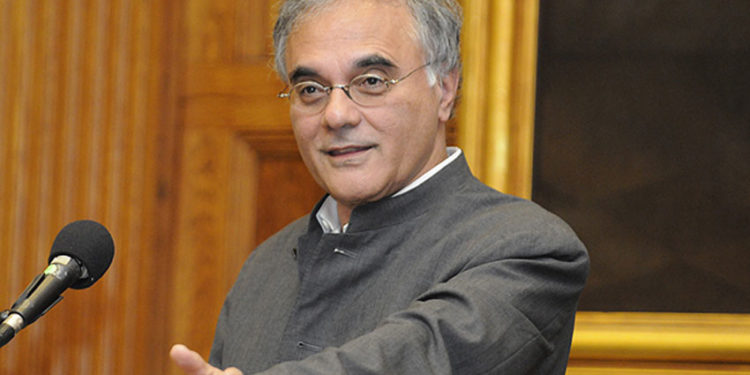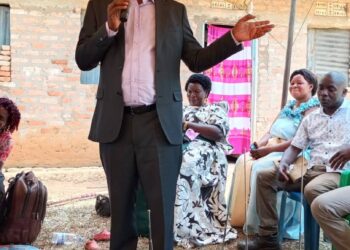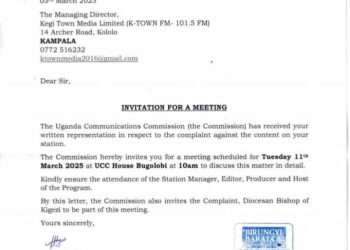Prof Mahmood Mamdani is an outspoken and highly distinguished third generation Ugandan academician of an Indian descent. An experienced lecturer of Anthropology, he also doubles as a veritable author of widely cited works, and a political commentator.
On February 28th, 2022 he astonished everyone by officially announcing his iconic retirement from Makerere University Institute of Social Research (MISR), marking twelve years of academic service.
He attributes his success in academia to deligence, perseverance, self discipline and being principled. His first hand experience of Amin’s expulsion of Asians in 1972 shaped his political thought and authorship in the later years.
He is now concertrating on his post as Chancellor Kampala International University, which he secured in early August 2020.
Prof Mamdani is also a professor of International politics and governance at Columbia University in the United States of America.
His ancestral roots are traced in Mumbai, south eastern India, but grew up in Kampala, Uganda. His parents were born in Tanganyika territory, which is present day Tanzania.
He is married to Mira Nair, an Indian film director and producer, whom he met in Kampala, in 1989 when the latter was conducting research for her film, Mississippi Masala. In this marriage, they have a son named Zohran Mamdani.
Milestones:
Prof Mamdani attained his primary education at the Government Primary School in Dar-es-Salaam, but later on moved to Uganda, and joined K.S.I. Primary School in Kampala, then to Shimoni and later on to Nakivubo Government Primary School in Kampala, where he completed his primary level.
He joined Old Kampala Senior Secondary School, from where he completed his secondary studies.
In 1963, he was one of a few 26 Ugandan students who won a scholarship to study in the United States.
He was part of the 1963 group of the John F. Kennedy Airlift, a scholarship program that brought hundreds of East Africans to universities in the United States, and Canada between 1959 and 1963, as a gift to newly independent African states. Mamdani joined the University of Pittsburgh in 1963 and graduated with a Bachelor of Arts in political science in 1967.
His activism and Marxist views started back way at campus. He got exposed to Marxism and Leninism from an FBI visit at Pittsburg University.
Mamdani was among the many students in the northern US who made the bus journey south to Montgomery, Alabama, organized by the Student Non violent Coordinating Committee (SNCC) in March 1965, to participate in the civil rights movement. He was later apprehended, but while in jail, he requested to make a phone call.
In the phone call, he sought assistance from the Ugandan Ambassador in Washington, D.C. The ambassador asked him why he was interfering in the internal affairs of a foreign country, to which he responded by saying that it was not an internal affair but a freedom struggle and that they too had gotten their freedom a year before.
After his release, he joined The Fletcher School of Law and Diplomacy and graduated in 1968 with a Masters degree of Arts in political science and Master of Arts in Law and Diplomacy in 1969.
He attained his Doctor of Philosophy (PhD) in government from Harvard University in 1974. His earliest works were titled Politics and Class Formation in Uganda.
Writing Career
Mamdani specialised in the study of African and international politics, colonialism and post‐colonialism, and the politics of knowledge production. He has written many books in this realm.
In 2004, he published a thesis, in which he clarified the tenets of American Foreign Policy. It was entitled “Good Muslim, Bad Muslim”. It won him a wrath from the US government, and subsequently, he was sanctioned.
In his journal, he directly linked America’s foreign policy to the rise of world’s most brutal terrorist groups like Al-Qaeda.
From his analysis, it was America that trained Osama Bin-Laden, under president Ronald Reagan, in the wake of Soviet Invasion of Afghanistan. The latter turned around later on and hurt his trainers- the Americans.
He further decries and dismisses the notion of trying to link terrorism to the Islamic religion, a view held by influencial white house politicians and analysists.
In his other research “Citizen and Subject: Contemporary Africa and the Legacy of Colonialism”, Mamdani argues that the post-colonial state cannot be understood without a clear analysis of the institutional colonial state.
He labours so much to explain the intersection between politics and culture, a comparative study of colonialism since 1452, the history of civil war and genocide in Africa, the Cold War, the War on Terror, history and theory of human rights.
The nature of the colonial state in Africa, according to Mamdhani was a response to the dilemma of the ‘native question’ and argued that it took on the form of a ‘Bifurcated State’.
This was characterised by ‘direct rule’ on the one hand which was a form of ‘urban civil power’ and focused on the exclusion of natives from civil freedoms guaranteed to citizens in civil society.
Mamdani analyses extensive historical case studies in South Africa and Uganda, to argue that colonial rule tapped into authoritarian possibilities, whose legacies often persist after independence.
In 2010, Mamdani was appointed director of Makerere University Institute of Social Research (MISR) His tenure at MISR was marred by controversy. In 2016, he fought a ferocious war with Dr. Stella Nyanzi, his fellow researcher, who later on accused him of poor management techiniques.
The point of conflict stemmed from the fact that Mamdani wanted Nyanzi to teach at the newly introduced PhD programme, something she rejected, claiming that she had been hired as a researcher.
In 2018, he rejoined the University of Cape town, South Africa after which he was appointed honorary professor.
He also taught at the University of Dar- Es -Salaam. He is the founding director of the Centre for Basic Research in Kampala, Uganda (1987–96). Mamdani was president of the Council for the Development of Social Research in Africa from 1999 to 2002.
Do you have a story in your community or an opinion to share with us: Email us at editorial@watchdoguganda.com













